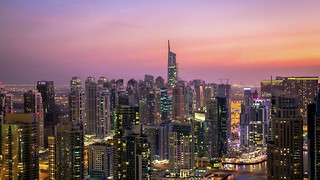Transnistria University
A world away from VKs and eduroam, Oliver James experienced Freshers’ week in the breakaway ex-Soviet region of Transnistria

In late September I took advantage of Cambridge’s leisurely term dates and gate-crashed another university’s Freshers’ week. Alcohol, music and the usual shenanigans – a chance to catch up with friends and celebrate the end of summer. The only complication was that they study in the breakaway region of Transnistria’s State University.
Transnistria broke away from Moldova, a grindingly poor former-Soviet Republic, more than 20 years ago. The ‘republic’ isn’t internationally recognised, but it’s bankrolled by Russia whose peace-keeping soldiers are visible in the ‘capital’ Tiraspol. It’s also known as the last remnant of the Soviet Union, complete with hammers and sickles adorning the streets and buildings, and a jolly statue of Lenin outside the government building.
This breakaway region rarely makes the headlines, except when its stockpile of Soviet-era nuclear resources catch the attention of organised criminals, Middle Eastern extremists and the US. I’d heard horror stories about Tiraspol’s hotels, with armed thugs ransacking hotel rooms during the night. Eager to avoid that debacle, and to get the true Soviet experience, I opted to stay in dorms with my hosts in the centre of the city.
The guest policy of Transnistria State University is relatively strict, and thus I was given the option of pretending to pass off as a local or climb through the window after curfew. Despite the once-stellar reputation of the Soviet Union’s gymnastics team, I was reluctant to be flung from the second storey window at midnight and so took my chances with the front door.
The university’s infrastructure was completed over 40 years ago during the Soviet era and there have been few upgrades since the war. Tap water in Tiraspol is safe to drink, but the pipes have corroded to the point where students filter the water through cotton makeup pads before drinking it. The university also offers a buttery, with disgruntled serving staff plating unrecognisable mush in a darkened cafeteria. Fortunately for the students of Tiraspol, the price is only a tenth of what Churchill College charges for the same experience.
Unsurprisingly, eduroam was nowhere to be found, but loitering around the library to connect to its free WiFi is an international pastime also common in the breakaway republic. The hospitality of my guests and new acquaintances was unrivalled. Like any good freshers’ week, there were drinking games and music blaring until the early hours.
Instead of VKs or whatever vino Sainsbury’s has on special, the drink of choice was home-produced wine or the village’s finest home-distilled spirit. In place of the cheesy tunes in Life or Cindies, Moscow’s Russian pop was the go. And just like after a few drinks in any given college bar, the topic of politics bubbled. In a region that is so reliant on Russia’s support, I was undoubtedly curious to ask about the perception of Putin.
“What do you mean you don’t like Putin?” they chorused.
The music stopped, the lights turned on and the crickets stopped chirping in disgust of my disloyalty. Among the dozens of students I met at Transnistria State University, Putin was seen as a defender against the corrupt and aggressive Western powers.
“If the EU is so good, why is Romania still poor?”
“Everybody knows the US started the war in Ukraine.”
“America controls the media.”
Much like the rusty taps and crumbling roads, the media culture in the breakaway republic also bears the hallmarks of its Soviet past. Russian channels dominate television and Soviet textbooks still line the reading lists. Far away is the world of ‘microagressions’ and ‘safe spaces’. From the Sheriff Company’s near-universal monopoly to the diplomatic Siberia where the region is stranded, the situation in Transnistria is bleak.
Although the guns have long fallen silent, many of my comrades described living in an unrecognised region as a battle. For a generation born after the war, the sense of injustice and the arbitrary nature of the conflict are clear.
 Features / The community Cambridge accommodation creates (and doesn’t)9 August 2025
Features / The community Cambridge accommodation creates (and doesn’t)9 August 2025 News / Trinity sells O2 Arena lease for £90m12 August 2025
News / Trinity sells O2 Arena lease for £90m12 August 2025 Lifestyle / An ode to college accommodation11 August 2025
Lifestyle / An ode to college accommodation11 August 2025 Sport / ‘A full-time job with overtime’: should disparities change the way we approach Bumps?6 August 2025
Sport / ‘A full-time job with overtime’: should disparities change the way we approach Bumps?6 August 2025 Features / Incoming freshers and their hopes, fears and expectations for Cambridge 12 August 2025
Features / Incoming freshers and their hopes, fears and expectations for Cambridge 12 August 2025









